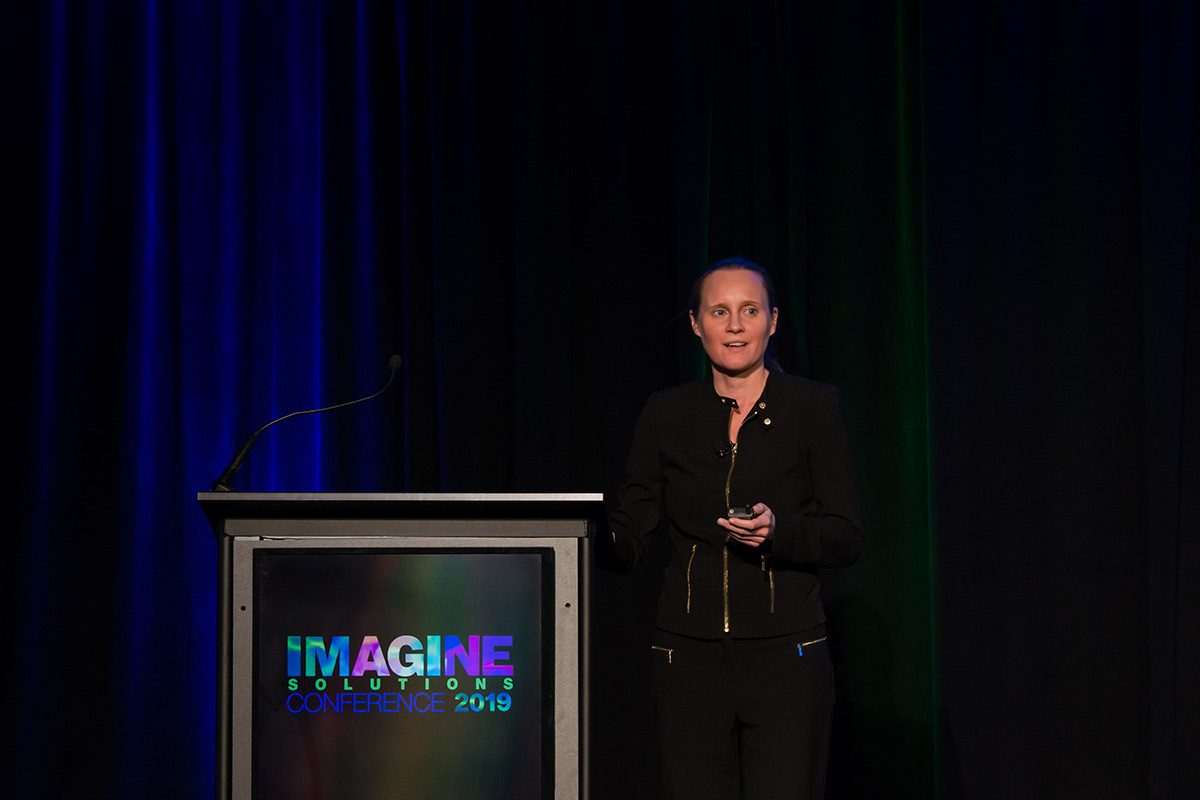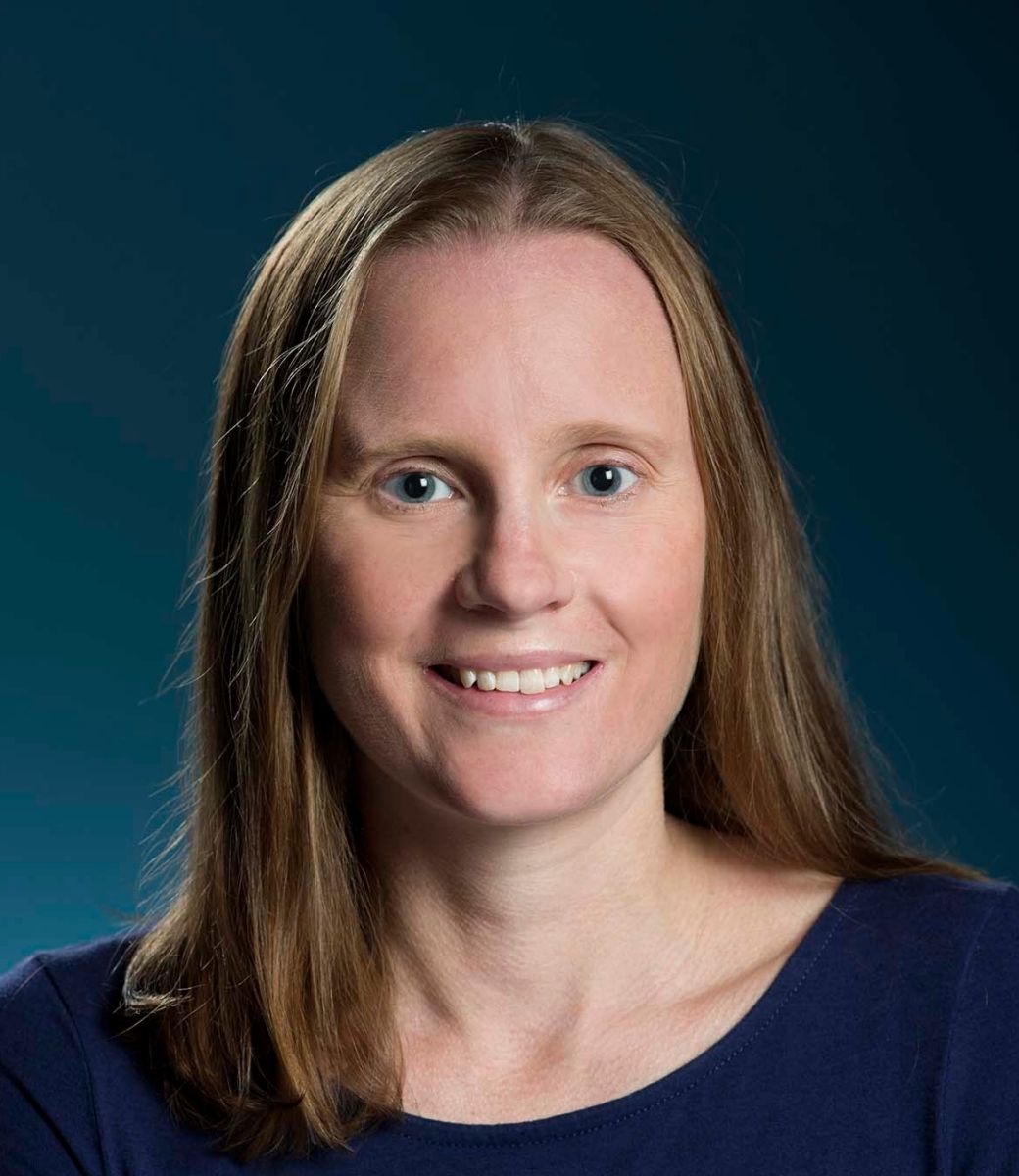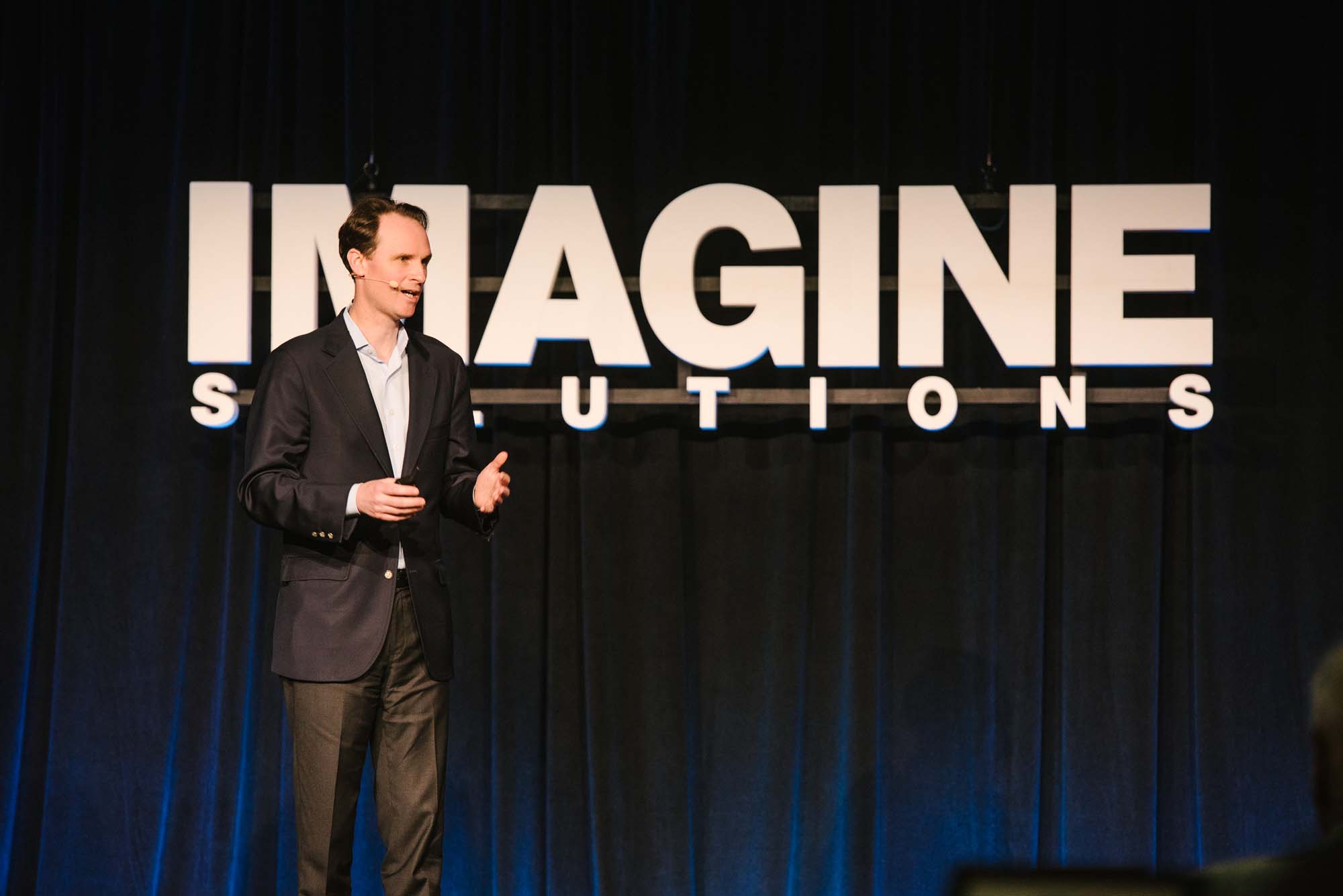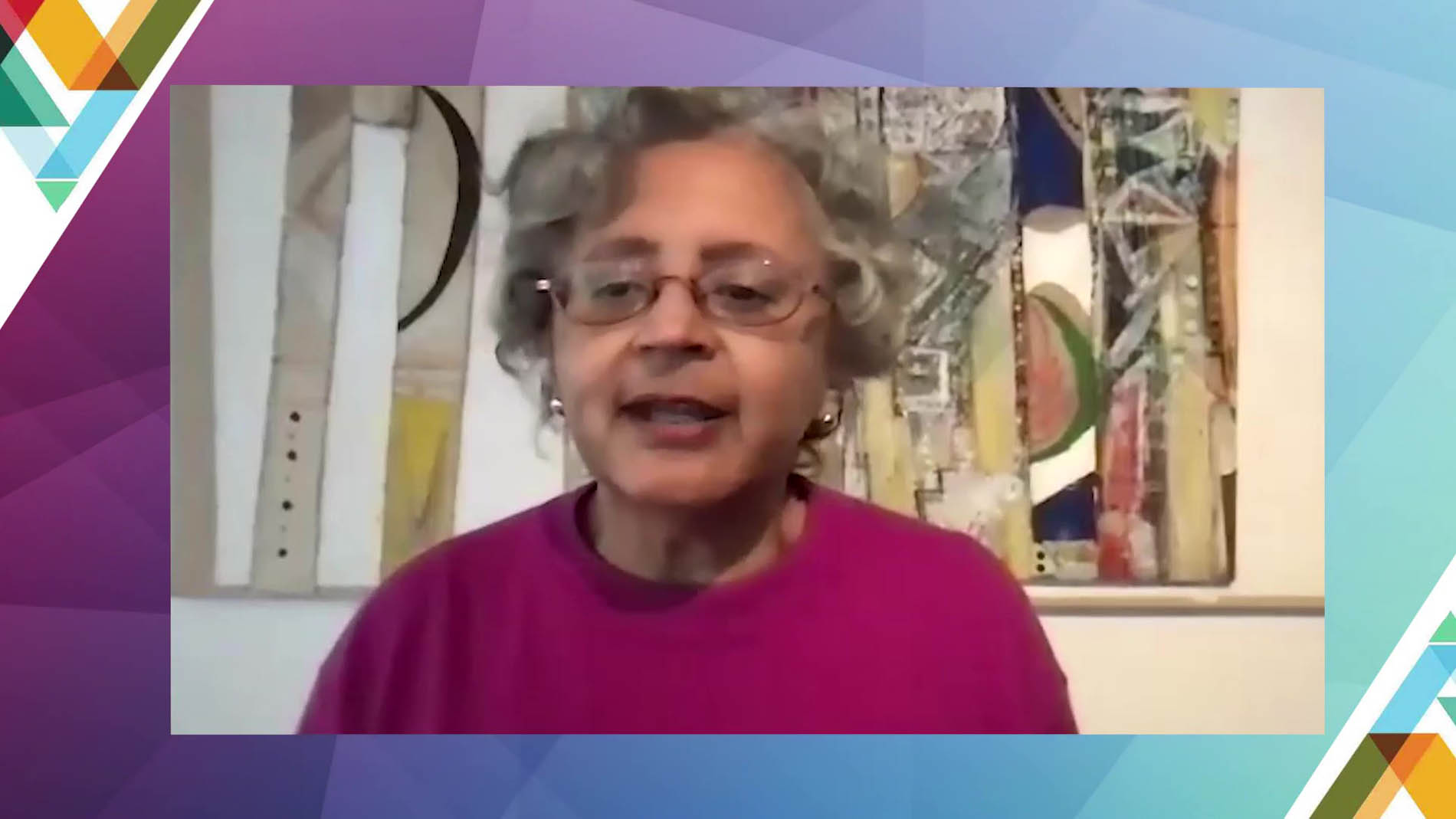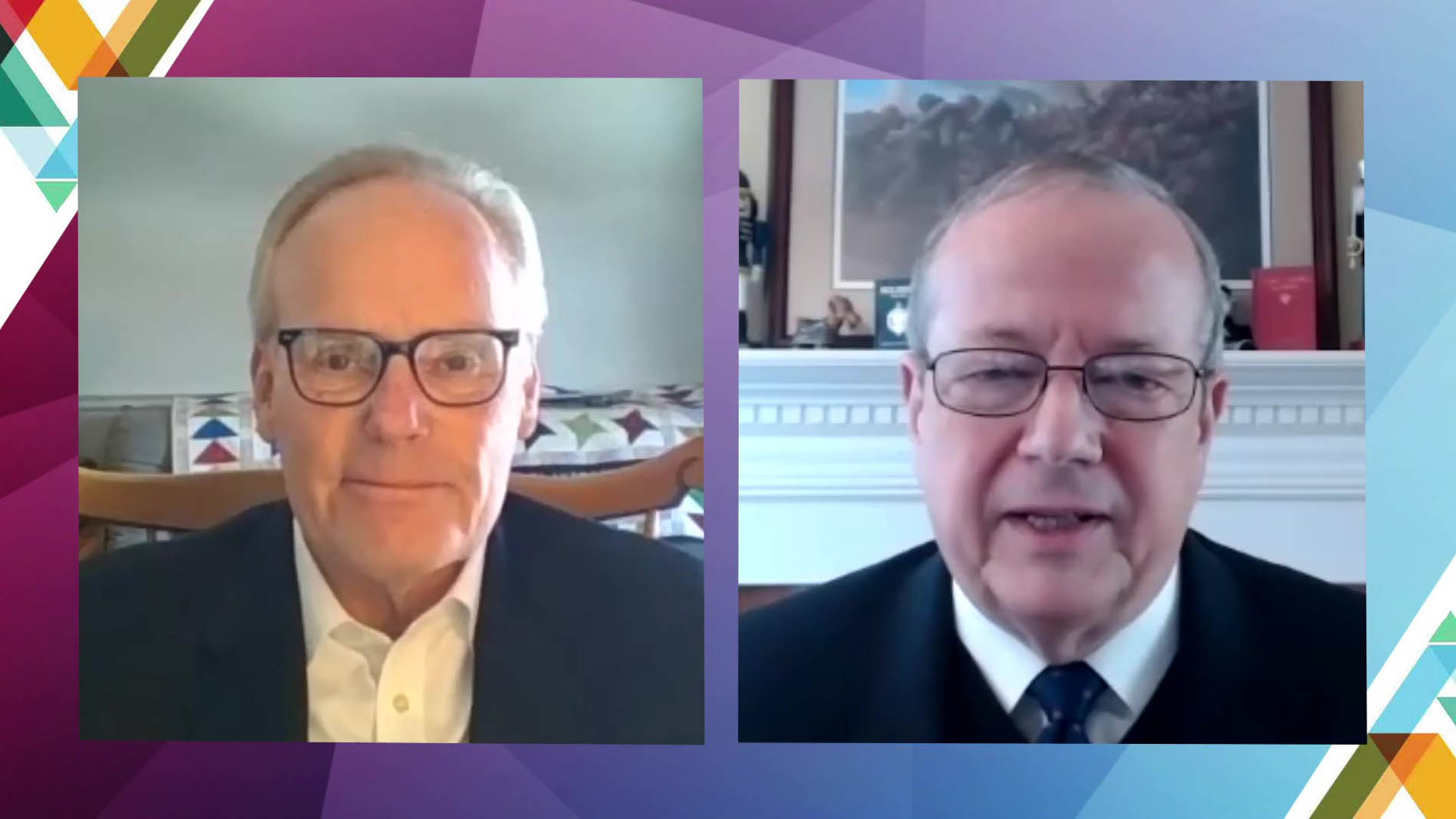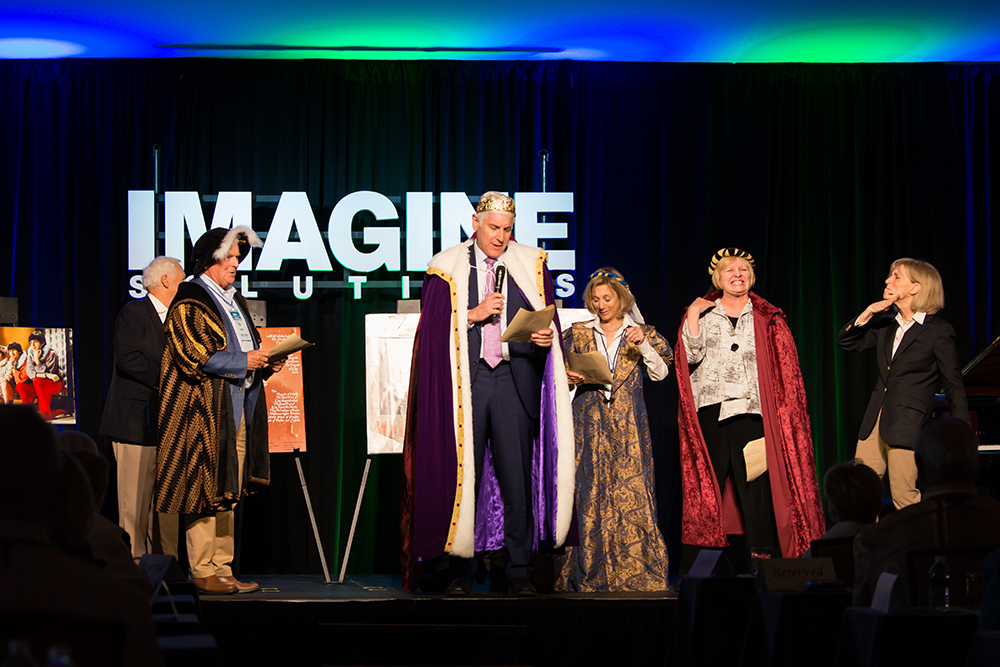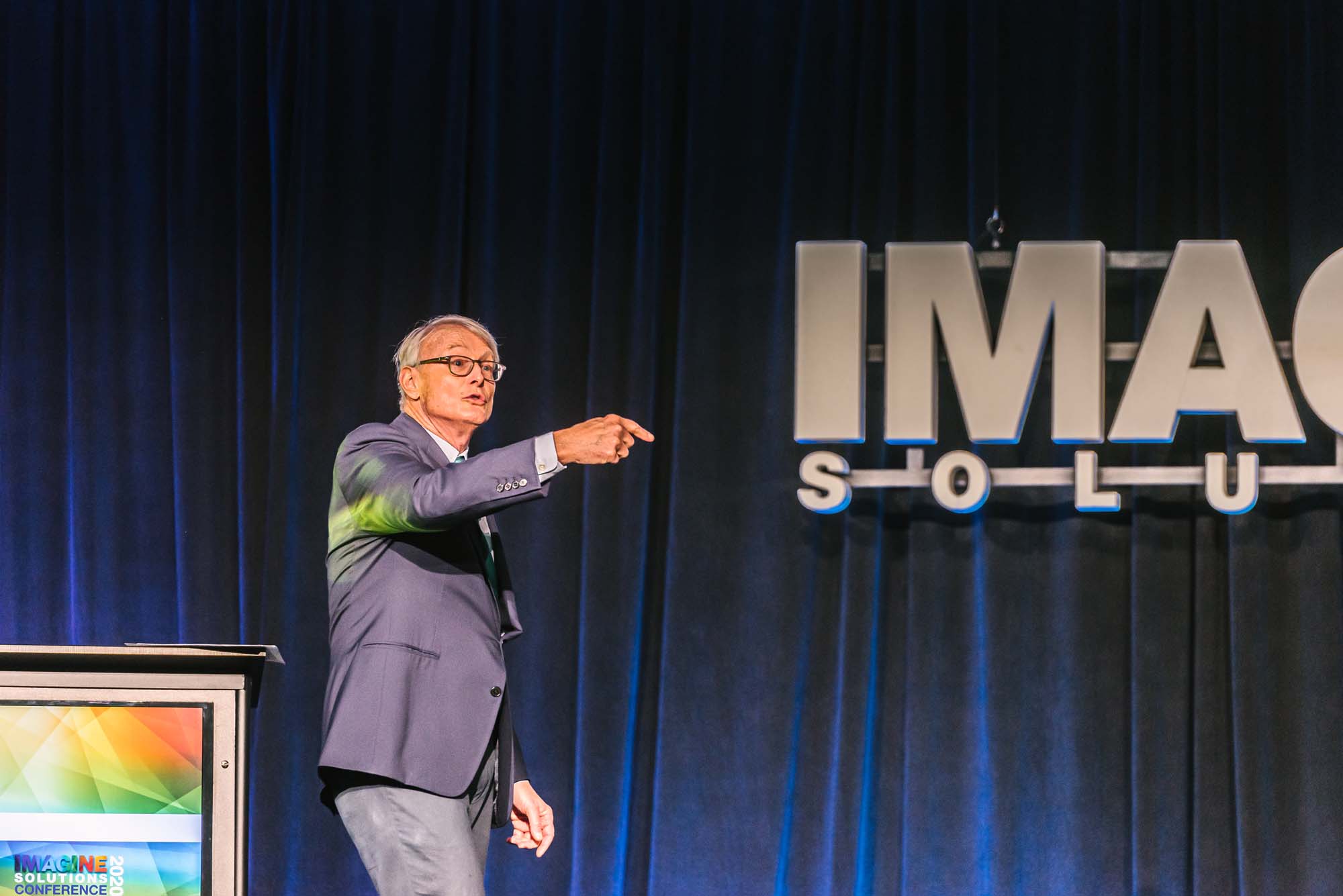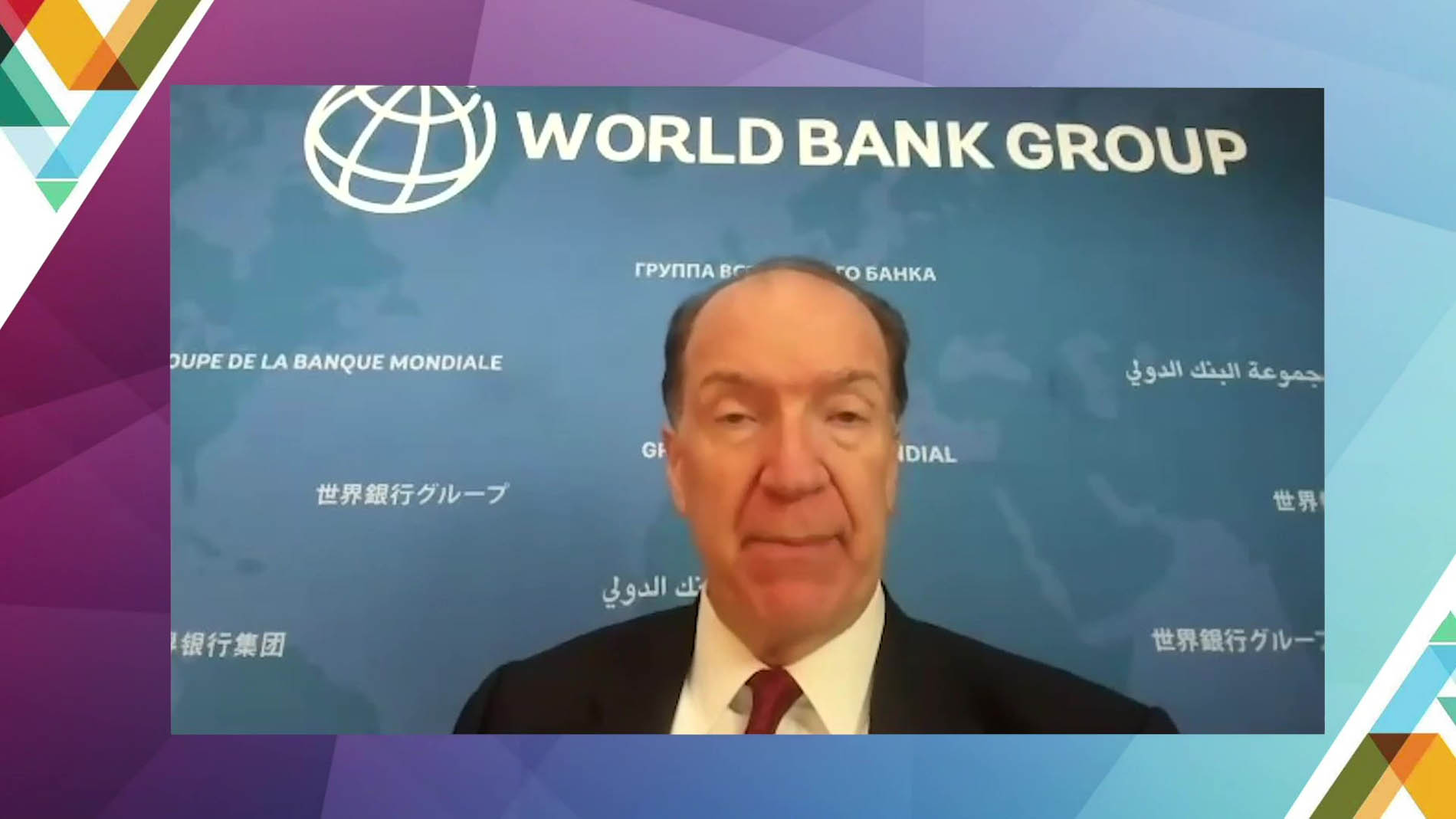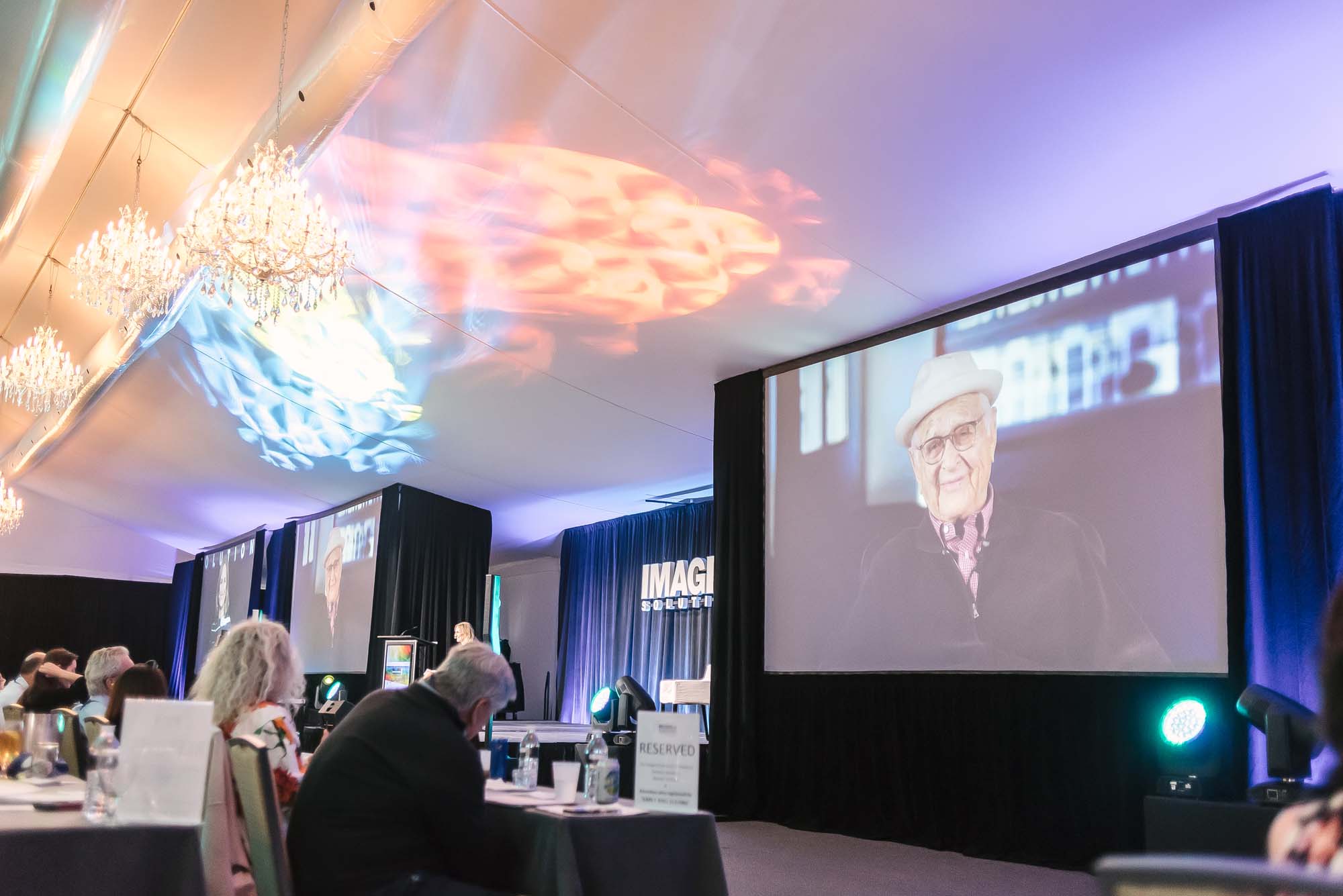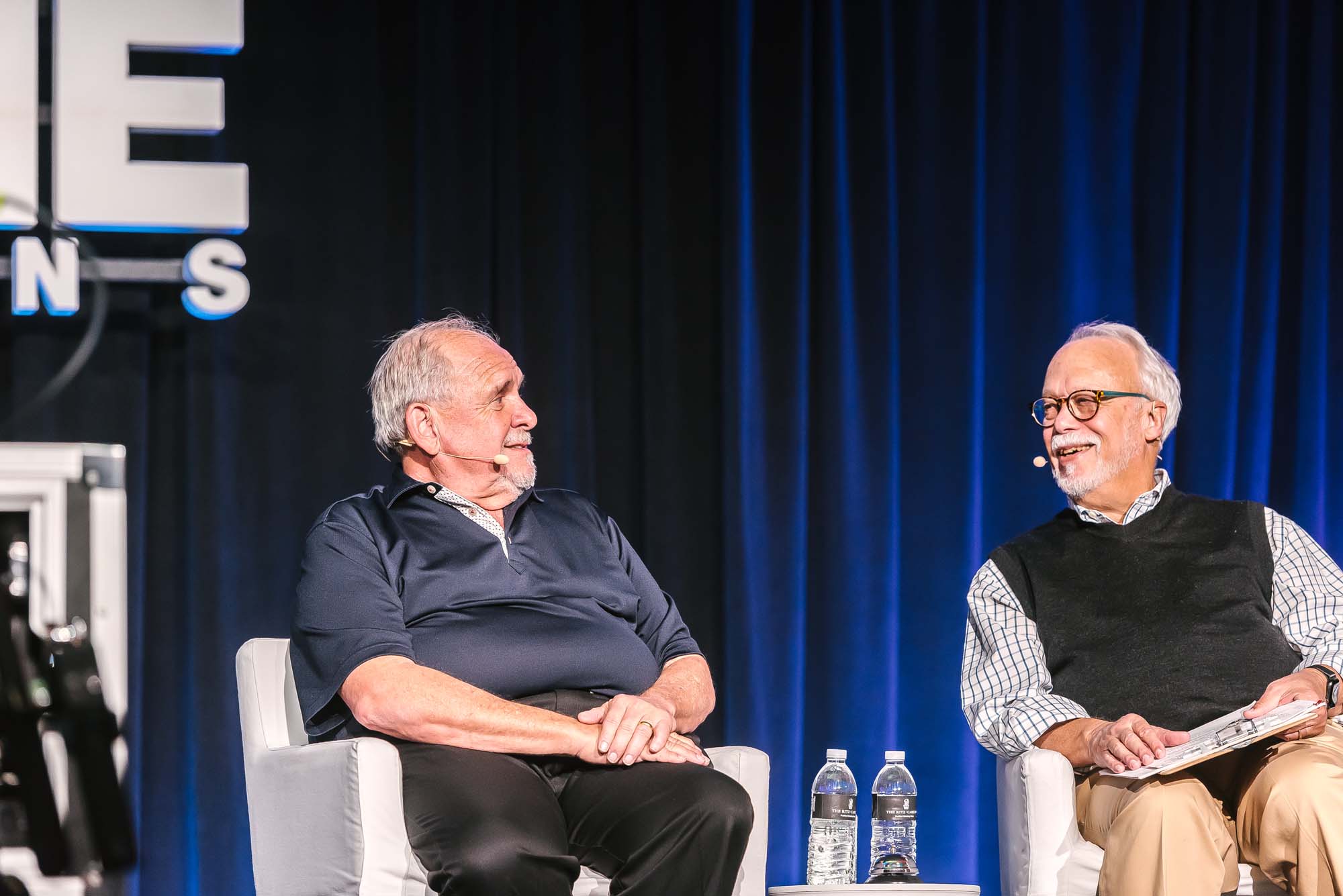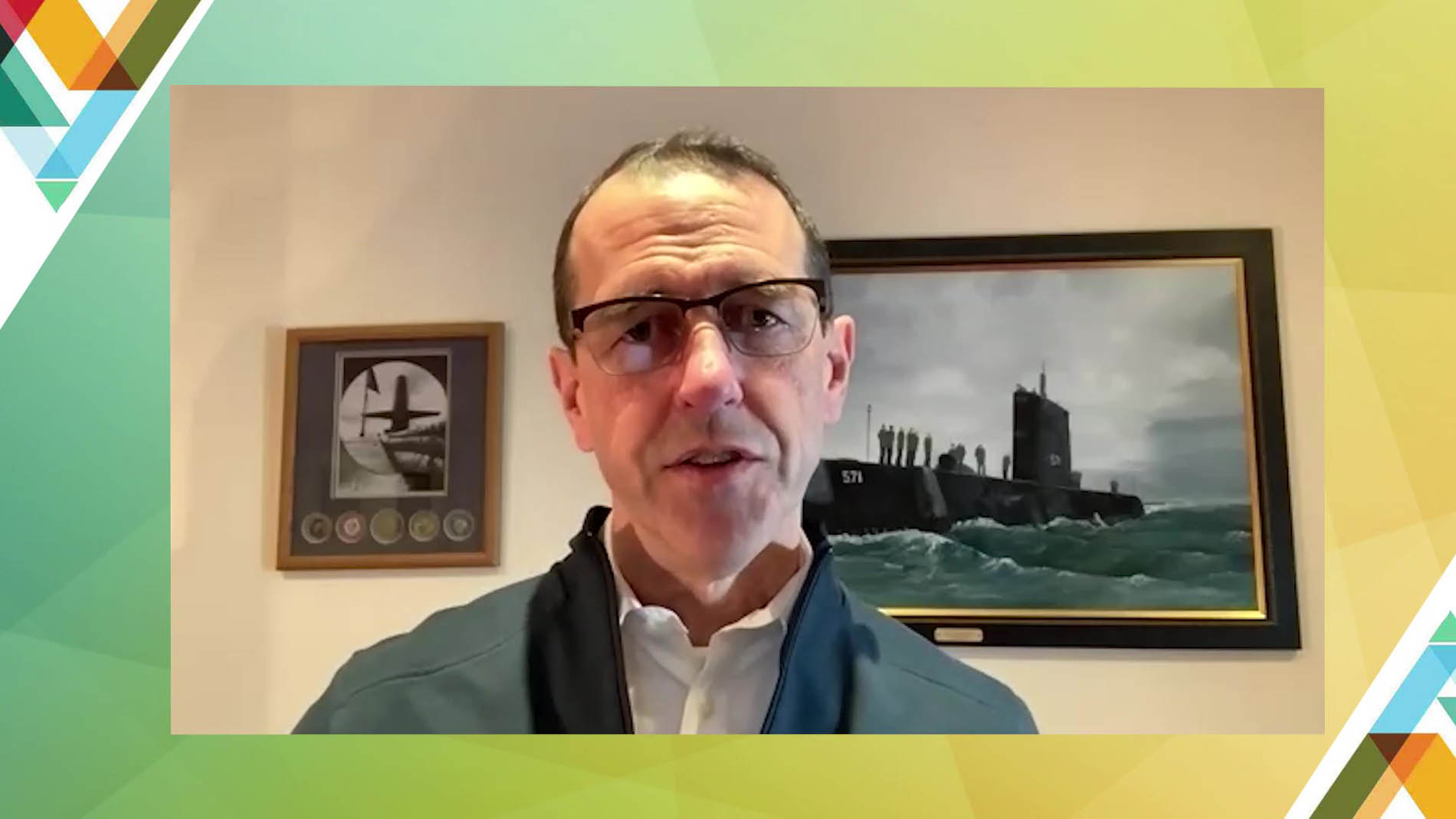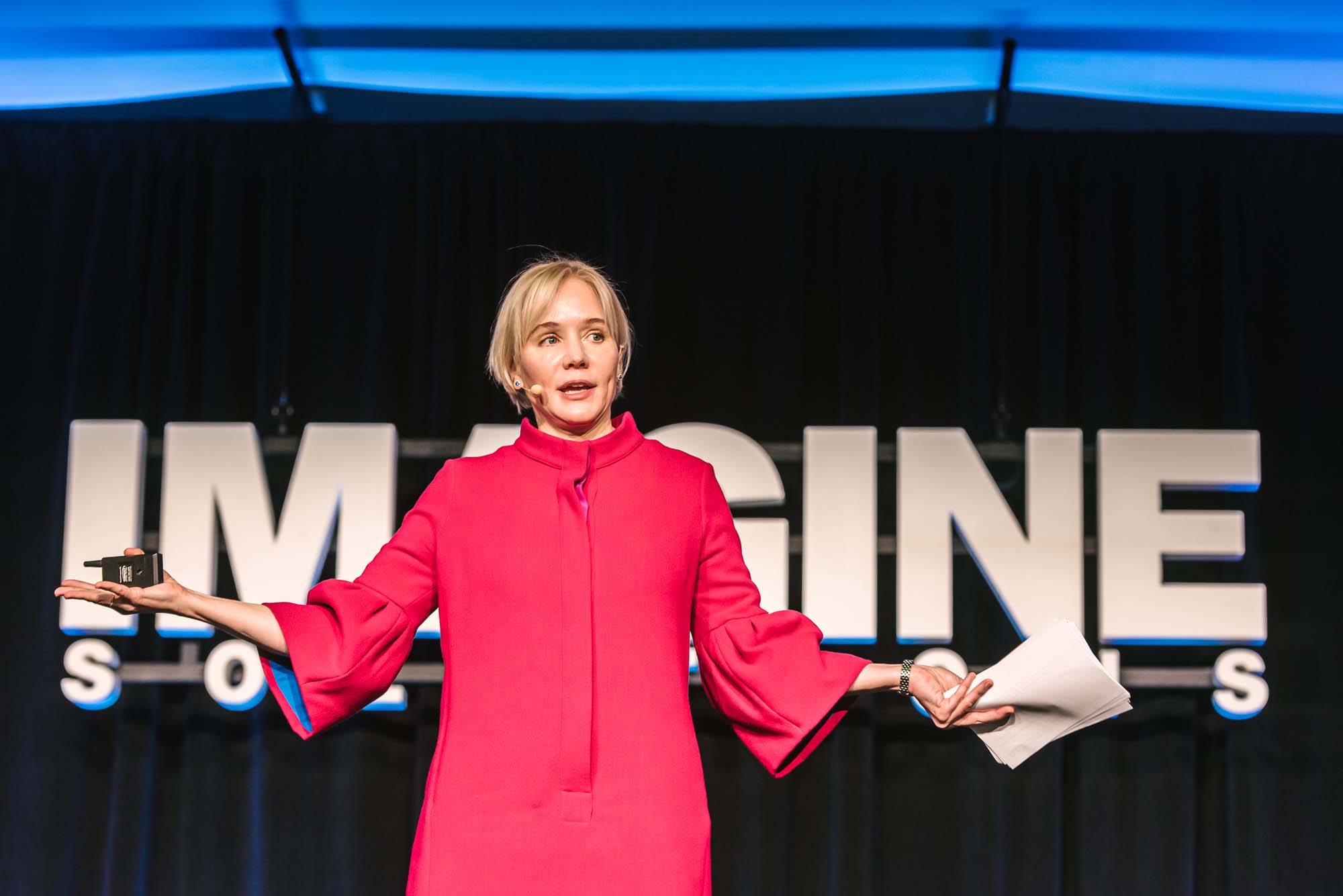Fighting Truth Decay to Preserve the Value of Facts
RAND researcher Jennifer Kavanagh presents about truth decay, which she and her colleagues define as the diminishing role that facts, data, and analyses are playing in civil, media, and political discourse. Jennifer and her team determined that aspects of truth decay have been present at previous points in U.S. history, but today there is a unique degree of disagreement about basic facts, underscored by a growing divergence between evidence and beliefs. Jennifer’s objective is to explore what causes these patterns, and how we might address them including thinking about a shared understanding of facts as a foundation of democracy, and metrics related to feelings of individual inclusion.
00.02
[Music] welcome have fun [Music] truth decay is the term that we're using at Rand to refer to the diminishing role that fax data and analysis increasingly play in our political and civil of discourse and our policy-making process and we're very concerned about it and we started a long-term initiative at Rand looking at this phenomenon trying to understand what's causing it and what we're and and we as a nation can do about it and we're aiming to do three things first or aiming to be holistic and comprehensive we're not just interested in the media we're not just interested in politics we're interested in how they interact and work together to cause the the challenges that we're facing today second we're trying to be objective like all Rand research projects we come to this wanting to look at the data and the evidence and find out what's going
01.00
on not coming in with preconceived biases or ideas and finally we want to be nonpartisan we want to have a rational and reasoned conversation that does not devolve into partisan arguing so what is truth decay what we define to treat the K as a system that includes four trends that characterize it has a set of causes or drivers and a set of consequences and so what I'm going to do today is I'm going to talk through each piece of this framework for you and then tell you a little bit about what we're working on now to help work towards solutions so first the trends we define truth decay as being comprised of four specific trends the first is an increasing disagreement about basic facts and data and analysis of those facts and data an example here would be the safety of vaccines or science around climate change places where we have overwhelming bodies of evidence and yet
02.01
people still refuse to accept those facts the second and third trends go together a blurring of the line between fact and opinion increasing relative volume of opinion compared to fact and I'm sure we've all had experiences of seeing instances of these two trends anytime you go on social media or the internet or turn on the television you're seeing facts an opinion intermingled in ways that's really difficult to disentangle and finally declining trust in institutions that we used to look to as sources of factual information and this would include things like the media and the government so the next question we asked once we have this definition is is this new is this something that we've never seen before or does it just seem worse now because we have smartphones and we have so much more information available to us so we identified three periods in US history that we thought shared some similarities to today and we looked for evidence of these four trends and the
03.02
periods we looked at where the Gilded Age in the 1880s to 1890s the Great Depression late 1920s into the 1930s and the 1960s to 1970s or the Vietnam era and we found evidence of three of those trends that I mentioned the blurring of the line between fact and opinion the increased relative volume of opinion compared to fact and declining trust in institutions so let me give you some examples in the 1880s to 1890s we had yellow journalism which was basically sensationalized news stories put in newspapers to sell more papers that's just sound really familiar to everybody in this room today we have examples from around the emergence of radio in 1920s and 30s and around television in the 60s and 70s where the line between what was true and what wasn't was increasingly blurred increasingly difficult for people to distinguish and we have periods in the 1920s and 1930s and the 60s and 70s where trust in institutions was really low in the 60s and 70s trust in the
04.00
government trust in the media trust in the military was very low so we've had these three turns in the past but what does seem to be different now is this increasing disagreement about basic facts this willingness to put aside facts so people have always been skeptical right there's been skepticism about vaccines since vaccines existed but what we see now is areas where we have more in our evidence and more and more people are becoming skeptical so there's a divergence between the evidence we have and people's beliefs so why is it different now to answer that we have to think a little bit about what's causing this phenomenon so we identified four causes the first isn't something new it's something that's always been around it creates the palette or the foundation for this phenomenon and that's cognitive biases in cognitive processing there have always been characteristics of the way that humans process information that makes us more susceptible to believing things that aren't true and to then hanging on to those beliefs really
05.01
firmly and here I'm talking about things like confirmation bias we like to be right we get dopamine hits from being right so when we look for information we're guided to look for information that proves that we're right we use heuristics and shortcuts we rely on our friends and family for information which can be great if our friends and family are well informed but if they're not then we're not getting good information so this creates the foundation but the this basis has been exacerbated by a number of other things that are new and the first most obviously is changes in our information ecosystem so here I'm talking about the internet social media and the speed and volume of information that we have now information travels faster and there's more of it and anybody can be anybody can be a voice everybody has a platform and that's a great thing we should want democratize access to information so I'm not up here saying that social media is bad or that we should move backwards but it does bring new challenges so do filters and algorithms that shape
06.01
the way we get information what I see when I google something is different than when everybody else in this room googles because those patterns are shaped on what I've looked for in the past and what Google knows I like and what I want to see so we're not no one is seeing the full view of information available and that creates that feeds into these biases that I mentioned before now the third driver has to do with education technology changes really fast institutions like schools change really slowly so as the info environment has gotten increasingly complex and the demands of navigating that environment become increasingly difficult schools increasingly struggle to keep up and to institute changes in the curriculum that help prepare students for those new challenges and it's certainly not something that only students face because adults have the similar challenges when they haven't been trained in in how to navigate information how to distinguish between what's a fact and what's not online how
07.01
to synthesize opinions how to look for biases all of this is different in the online environment and we need more support to people to gain these skills and so this gap between the skills that people need and the skills they have creates a vulnerability or susceptibility to disinformation until a lot of the challenges that emerge from having so much unfiltered information available to us and it's a lot more complicated addressing this educational challenge than just adding another course because media literacy which is what this is requires a whole different way of thinking and interacting with information so that's a real challenge now the final driver is polarization and here I'm not talking just about political polarization which we've all heard a lot about but also social demographic and economic polarization we live in increasingly homogenous enclaves where we are surrounded by people who think like us who have similar experiences and similar values and similar views of the world that creates
08.03
both a demand and an environment in which false and misleading and unbiased arguments can really thrive and that exists across the political spectrum so it's not something that's existing only and on one side or the other so now what are the consequences why should we care about this well I think we have many examples even if you just look at US history since you know the 1920s of cases where policies that are made not based on data based on something else have led to really negative and severe outcomes let's just talk about economics one of the reasons that the Great Depression was so long and so bad was because in the early 30s economists and policy makers made decisions that ignored basic macroeconomic fundamentals same thing happened in the 60s and 70s economic decisions made in the early 60s that ignored macroeconomic data led to some of the inflation that we saw in the late sixties and early seventies and we can
09.01
look at many other examples and other in other non economic areas where decision making decisions without data without evidence has led to really severe and negative consequences but there's a whole range of other types of consequences that we think come from truth decay and they originate with the fact that this lack of a shared understanding of a starting point a shared set of facts and data so when we as a society don't have a shared set of facts we lose that marketplace of ideas that civil discourse that's supposed to be the basis and foundation of democracy how can we have meaningful discussions about important issues if we can't even agree where to start that conversation and now that bleeds into the policy fear when policymakers don't have a shared starting point or a shared set of facts it's really difficult for them to then have a more sophisticated and meaningful discussion of policy options to weigh different priorities and discuss pros and cons because the whole discussion is spent trying to get to that shared set
10.00
of facts so there are many examples of cases we've seen just recently of the type of political paralysis that emerges when policymakers don't have a shared set of facts we just came out of a 35 day government shutdown which was driven law at least partially every shutdown has its own causes but at least partially it was driven by the fact that our policymakers couldn't start from the same place and have a meaningful discussion then about what policies to build on top of those facts the third consequence has to do with individuals individuals tend to feel checked out and alienated from the political system if they can't figure out what's true and what's not and who's telling the truth and who's not and we've seen political efficacy measures which is like how much I feel my vote matter go way down over the past couple of decades and that's concerning because it means people feel don't don't feel part of the democracy they don't feel included and what is a democracy if everybody doesn't feel like they're a part of it and finally uncertainty and this uncertainty exists on many levels it exists for
11.00
policymakers who don't have objective benchmarks on which to make policy decisions and it exists for individuals who don't have the facts they need to make basic decisions about buying healthcare or investing money so what are we doing about it well at Ram's were approaching this as a real research question and we've identified a complex research agenda that has four different pieces that we think we need to gather data on and understand better to get to better policy solutions now this seems like a severe problem a really severe challenge to our democratic institutions and so the gut response is to want to come up with reactions and solutions right away but if we don't have the data and the evidence to make those solutions be evidence-based then we're just making the problem worse so we're trying to take a pause take a step back to collect the empirical data and study that data that we need to look at historical and international analogues to understand how all these different pieces of this system that I describe to you today fit together and
12.01
then work towards responses and solutions so what does that look like then in terms of specific projects well first we're looking at how the presentation of news information has changed over time looking at the tone and style and the language used using machine learning tools that allow us to analyze thousands and thousands of newspaper articles all at one time we're doing surveys to ask people about their trust and institutions to understand how they use media better we're doing a project on media literacy trying to understand what it would mean to have an effective media literacy curriculum in schools that improve student outcomes we're doing survey experiments to understand how cognitive biases affect people's decision-making we're looking at civic literacy we're looking at what this means in international contexts so we have a whole range of projects going on right now starting and they'll start coming out in the next couple of months that are going to start to dig into this phenomenon deeper and to start making
13.01
recommendations recommendations to stake to stakeholders that range from policy Maker's to tech platforms to individuals because this is a systemic problem and in order to solve it it's going to require many different solutions from many different actors across the spectrum and so what I'll say in closing is that we're really excited about this project and we want to tell you more about it and if you'd like any more information about this or you'd like to get a copy of the book my colleagues Tamera and Brandon are in the back and if you give them a business card they'll be happy to send you the book for free or put you on an email list so we can send you more information about the project as it emerges over the course of this year thank you [Applause]

